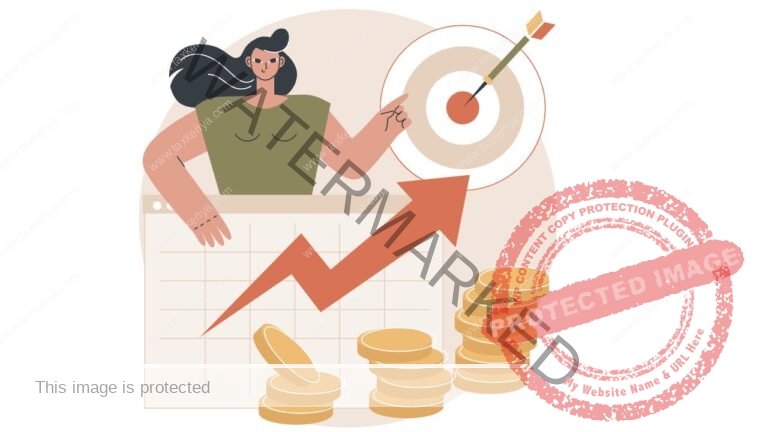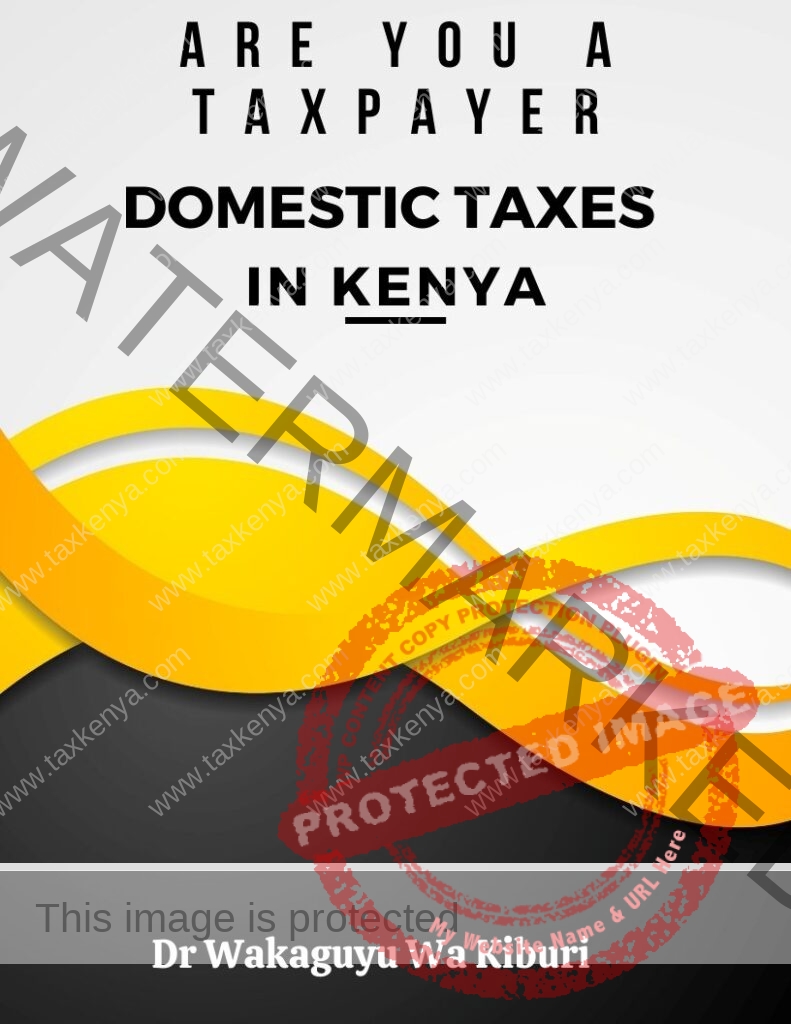An individual or organization in need of accounting services can hire a certified public accountant (CPA) or an accountant.
What is a CPA?
CPA stands for Certified Public Accountant. Individuals who have passed the CPA Examinations and met the academic and experience requirements to be licensed as CPAs get this professional title.
a. Affiliate Disclosure: These are affiliate links from which we receive a commission at no cost. Read full Affiliate marketing disclosure HERE.
b. Tax Contents Disclaimer: The tax industry in Kenya is very dynamic. The tax contents in the posts are not professional advice. Read full disclosure HERE.
Certified Public Accountants (CPAs) are recognised as experts in accounting, auditing, taxation, and other financial subjects. CPAs are employed or can set up their practices.
They work for public accounting companies, corporations, government agencies, or nonprofit organisations when employed.
CPAs provide various services, such as accounting, financial reporting, tax planning and compliance, auditing, and advice.
Besides having the required training and experience, CPAs must adhere to the ethical and professional standards set forth by the state boards of accountancy and the Institutes of Certified Public Accountants.
The CPA credential is highly valued and frequently required for senior-level roles in the accounting and finance business.
How can I become a CPA?
To become a CPA, there are various steps that one is required to take. The five most common actions are:
1.Required education:
Most countries and states require at least a bachelor’s degree from accredited colleges or universities and a predetermined number of accounting and business courses.
2. CPA Exams:
Almost all countries and states where CPAs are recognised administer CPA Tests mainly in various sections. Most countries have Institutes of Certified Accountants who are responsible for the exams.
For example, in America, the American Institute of Certified Public Accountants (AICPA) administers the CPA Exams in Financial Accounting and Reporting (FAR), Auditing and Attestation (AUD), and Business Environment and Concepts (BEC) (REG).
3. Work experience:
Most countries and states require employment experience in accounting-related fields, sometimes for 1-2 years before one becomes a licensed CPA.
4. Ethics requirements:
All CPAs must abide by society’s moral principles. Some countries or states require every CPA to undergo an ethics exam or training.
5. Obtain a CPA license:
Every country or state has different requirements to grant a CPA license. The most common requirements are education, work experience, passing the CPA exams, and ethics tests.
The requirements and the application process to become a CPA differ in each country and state. Remember to get information on the requirements. This is done by contacting the country or state board of accountancy.
What does a CPA do?
CPAs are accounting professionals that have received the necessary training and licensing to provide a range of financial services. CPAs typically provide services in:
1.Accounting and financial reporting:
CPAs support the preparation of financial statements for individuals and businesses and the tracking of financial activity.
2. Taxation:
CPAs help individuals and businesses comply with tax regulations and laws, lower tax bills, and prepare for future tax obligations.
3. Auditing and attestation:
CPAs offer auditing and attestation of financial statements. Auditing and attestation guarantee that financial statements and other financial information are correct and adhere to accounting standards and the country’s laws.
4. Consulting:
CPAs advise individuals and organisations on various monetary activities, such as budgeting, financial planning, and investing tactics.
5. Risk management:
CPAs help individuals and organizations recognize and manage monetary risks, such as operational, market, and credit risks.
6. Forensic accounting:
As forensic accountants, CPAs offer financial fraud investigations and other financial crimes. They are also invited by courts to provide expert testimony.
CPAs are critical in ensuring individuals’ and corporations’ economic stability and legal compliance.

What are the benefits of becoming a CPA?
1. Job opportunities:
Many businesses in the accounting field, particularly those in tax and audit, prefer CPAs. The chances of finding employment and the capacity to fill particular accounting positions can be improved by qualifying as a CPA.
2. Earning potential:
In many countries or states, CPAs often make more money than non-certified accountants. For example, according to the US Bureau of Labour Statistics, the median annual salary for auditors and accountants in the US was $73,560 as of May 2020. However, CPAs frequently earned salaries higher than this.
3. Career advancement:
A CPA license can hasten career advancement, particularly in management roles or disciplines like valuation or forensic accounting. Employers prefer CPAs for these positions. A CPA designation can show expertise in and commitment to the accounting industry.
6. Professional credibility:
A CPA certification is a well-respected and well-known credential in the accounting sector. It can boost professional credibility and reputation. Clients and companies may be more likely to trust your knowledge and recommendations if you hold a CPA certification.
6. Continuing education opportunities:
Many countries and states require CPAs to take part in continuing education courses to maintain their licenses. These courses are beneficial for learning new skills, remaining current on industry developments, and connecting with other accounting professionals.
A CPA can offer accounting professionals several benefits, including increased job opportunities, earning potential, and enhanced professional credibility.
What is the difference between an Accountant and a CPA?
Although both CPAs and accountants work with financial data, the two have several significant differences.
1. Certification:
A CPA is a trained professional who has passed the Unified CPA Test and completed the academic and experience requirements to become licensed as a CPA. An accountant may or may not possess a certification. If they have any certification, they have minimal qualifications.
2. Scope of services:
CPAs offer a more comprehensive range of services, including audits, consulting, financial reporting, tax planning, and compliance. Accounting professionals mainly concentrate on bookkeeping, financial reporting, and tax preparation.
3. Legal standing:
In some countries or states, the term “public accountant” and the precise services it entails can only be used by CPAs.
4. Set ethical and professional standards:
CPAs must adhere to the ethical and professional standards set out by the Institute of Certified Public Accountants or state boards of accountancy. The expected standards are more demanding than those for accountants.
5. Education and experience requirements:
To be licensed, CPAs must meet specific academic and experience requirements. A minimum bachelor’s degree, successful completion of a certain number of accounting and business courses, and related job experience are typically the prerequisites. Many educational and professional backgrounds are possible for accountants.
Even though all CPAs are accountants, not all accountants are CPAs. CPAs are better positioned to offer their clients a more comprehensive range of services because of their higher levels of education, certification, and professional standards.
Do I need a CPA to work in accounting?
In many countries and states, having a CPA is optional to work in accounting. A CPA license is optional for many accounting occupations, especially entry-level ones. Having a CPA designation can have many benefits for your accounting career.
Can I become a CPA with a non-accounting degree?
It is possible for someone with a degree in a discipline other than accounting to become a CPA. Although most countries and states demand an accounting degree or a closely related field at the bachelor’s level as the baseline qualification for a CPA license, several countries and states allow non-accounting degree holders to become CPAs if they complete additional requirements.
An individual without an accounting degree may need to take other accounting courses for the CPA exam and certification.
1. Additional accounting coursework:
Some jurisdictions may demand extra work experience in a relevant field for individuals who need accounting degrees.

2. CPA Exam:
Regardless of educational background, passing the CPA exams is required for anyone seeking a CPA license.
3. Ethics requirements:
Several countries and states require that applicants for CPA licenses complete an ethics course and pass ethics exams.
Remember that each country and state has requirements for earning a CPA designation with a non-accounting degree. Contact your country or state accountancy board to learn more about the requirements.
What are the different types of CPA licenses?
The types of CPA licenses vary from country to country and state to state. Some of the most common CPA license categories include the following:
1. Certified Public Accountant:
A Certified Public Accountant (CPA) is the standard license for public accountants, which permits holders to provide various accounting services to the general public.
2. Public Accountant:
Public Accountant (PA) is a separate license from a CPA license, which some countries or states grant. This license allows holders to offer a more limited scope than a CPA license.
3. Registered Public Accountant
Registered public Accountant (RPA) is accessible in some countries and states. The holders can provide the general public with limited accounting services, such as tax preparation and bookkeeping.
4. Certified Management Accountant:
The Institute of Management Accountants offers Certified Management Accountant certification in many countries and states. The holders focus on management accounting, financial planning, and analysis.
5. Certified Fraud Examiner:
The Association of Certified Fraud Examiners provide Certified Fraud Examiner (CFE) accreditation. The holders are focused on preventing, detecting, and investigating financial fraud.
6. Accredited in Business Valuation:
The Accredited in Business Valuation (ABV) certification is focused on business valuation and related services.
7. Personal Financial Specialist:
The Personal Financial Specialist (PFS) certificate holders focus on providing families and individuals with financial planning and investment advice.
It is important to remember that the specific types of CPA licenses and certifications available may vary by country or state. The requirements for obtaining these licenses may also differ.
Conclusion
A CPA is a licensed accountant who has obtained their certification through a combination of formal education, real-world training, and passing the CPA exams.
Auditing, tax preparation, and financial planning are a few accounting and financial services that CPAs can provide to the public.
Country or State boards of accountancy or institutes of certified Public Accountants issue CPA licenses. Although becoming a CPA requires significant time, education, and experience, CPA credentials can offer accounting professionals several benefits, including more job opportunities, increased income potential, and a better reputation in the industry.
Grab a FREE Book








